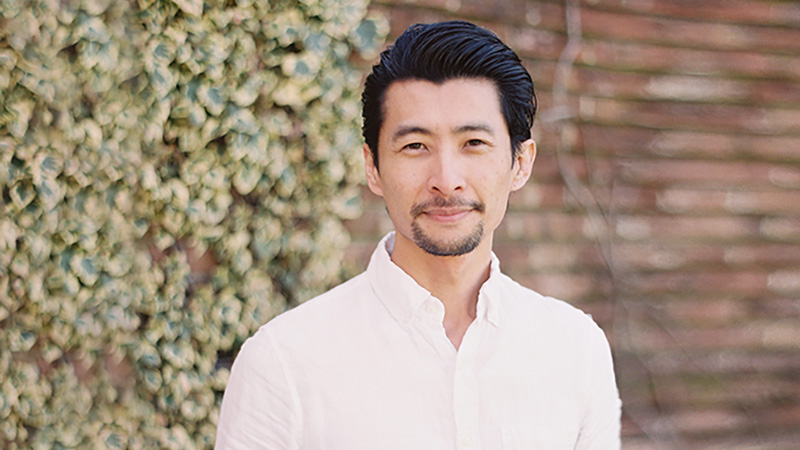More than a decade after he co-founded medical diagnostics company Cytovale in 2013, UCLA bioengineering alumnus Henry Tse, Ph.D. ’12 is well on his way to deploy a tool his company designed for early detection of sepsis — the number one cause of death in hospitals.
In January, Cytovale received clearance from the U.S. Food and Drug Administration for its rapid sepsis diagnostic tool IntelliSep, clearing the way for its use in hospitals around the country.
According to the U.S. Centers for Disease Control and Prevention, at least 1.7 million adults in America develop sepsis in a typical year and one in three people dies in a hospital as a result of the medical condition. Sepsis occurs when an existing infection triggers a chain of immune response through the body that, if not defected or treated timely, can rapidly lead to tissue damage, organ failure, or death.
IntelliSep is designed to help clinicians recognize sepsis in adult patients at an emergency department by providing test results from a standard blood draw in under 10 minutes. The diagnostics tool then categorizes findings into three bands — from low to high probability of sepsis. The results may equip heath care providers with a tool to optimize clinical outcomes and resource utilization, offering timely treatment to those who are more likely to develop sepsis.
“I chose UCLA for my doctorate because the university attracts people who see the
connectedness in the world and want to be active contributors to that,” Henry Tse said.
“I am proud that our founding team had the fortitude and unwavering commitment to bring a first-of-its-kind technology to life in order to solve a poorly defined disease,” said Tse, who serves as Cytovale’s chief technology officer.
Growing up in San Francisco, the son of immigrant parents from Hong Kong spent most Sundays at the family’s small antique and art business where Tse learned the importance of a problem-solving mentality to an entrepreneur.
He developed an interest in technology and science early on, building a website at age 7 when he got his first computer because he wanted to understand how the internet worked. The experience sparked a lifelong interest in understanding the inner workings of the world and finding ways to help push that understanding further.
Tse chose to major in bioengineering as an undergraduate at UC San Diego because he saw biology as an unexplored frontier that could solve many of the world’s unknowns through applying fundamental principles of mathematics and engineering.
His college experience got him thinking about going to graduate school at a place that connects science, engineering and clinical medicine through collaboration. “I chose UCLA for my doctorate because the university attracts people who see the connectedness in the world and want to be active contributors to that,” said Tse, who zeroed in on a research group led by Dino Di Carlo, then an assistant professor. Di Carlo was in the early stages of setting up a research lab designing microfluidic tools to investigate biology.
“I vividly recall my first meeting with Dino, during which he shared his research interests and vision for his new lab — a space to study biology at the single-cell scale enabled by microfluidic tools,” Tse said. “These tools would enable scientists to unlock new information and gain a deeper understanding of biology, one cell at a time.”
“Life isn’t a sprint,” Tse said. “It takes effort every day in every decision to reach the next step.”
As one of Di Carlo’s first students in the research group, Tse helped build out the lab that in many ways functioned like a startup — developing new technologies, securing funding and publishing studies.
One of the group’s early breakthroughs was in the area of flow cytometry, where the properties of individual cells are analyzed one at a time by leveraging fluid inertia in microfluidic platforms, or inertial microfluidics. Tse’s doctoral dissertation focused on deformability cytometry — where cells are squeezed as they flow through small tubes. The degree to which cells deform reveals a great deal about what goes on inside them, including early signs of cancer.
Collaborating with colleagues from the David Geffen School of Medicine at UCLA, Tse demonstrated that the team’s deformability cytometry technology is capable of detecting signals for both acute and chronic inflammation, which can then be further refined to identify the body’s immune state.
After earning his Ph.D., Tse returned to the Bay Area to run Cytovale, scaling up the deformability cytometry research he started at UCLA to develop early detection technologies that can rapidly diagnose diseases.
“Di Carlo has taught me how to be a diligent scientist who considers the evidence, an ambitious engineer who doesn’t accept ‘can’t’ as an answer and a leader who always looks for opportunities,” said Tse of his mentor and Cytovale cofounder Di Carlo, who also serves as the firm’s scientific advisor.
Over the past 15 years, Di Carlo’s lab has made major advances in microfluidics, microfabrication and nanotechnologies to develop new technologies that can now sort, manipulate and analyze thousands and millions of cells and molecules per second. The research has led to next-generation rapid disease diagnostics, as well as tools for drug discovery and cellular biology.
Despite the complexity of turning a technology developed in a lab into a ready-to-deploy product, Tse said he and his team never pivoted.
“In much the same way, it’s a lesson I learned for my own life — that life isn’t a sprint,” Tse said. “It takes effort every day in every decision to reach the next step. Building upon each step gets you up that mountain.”

